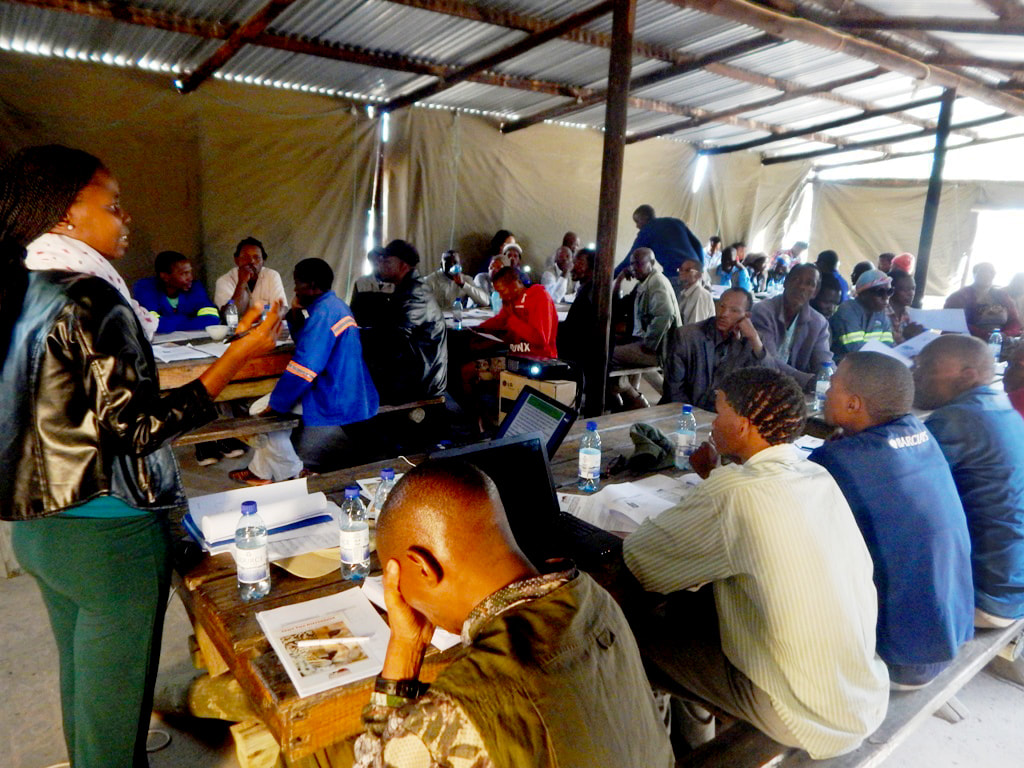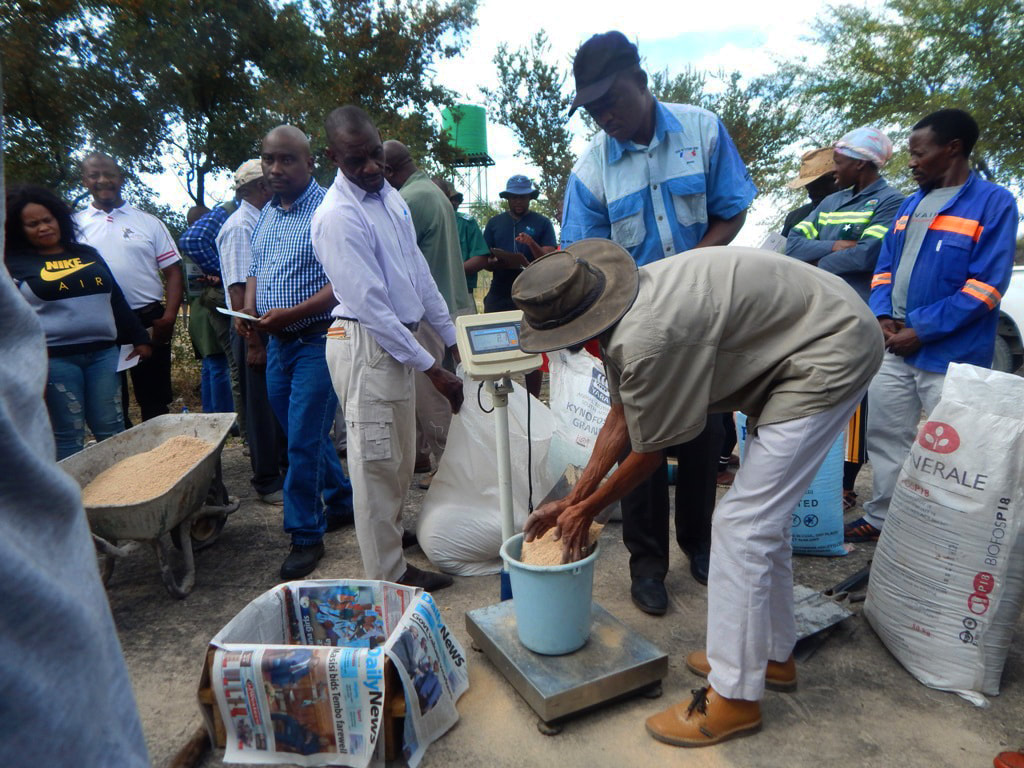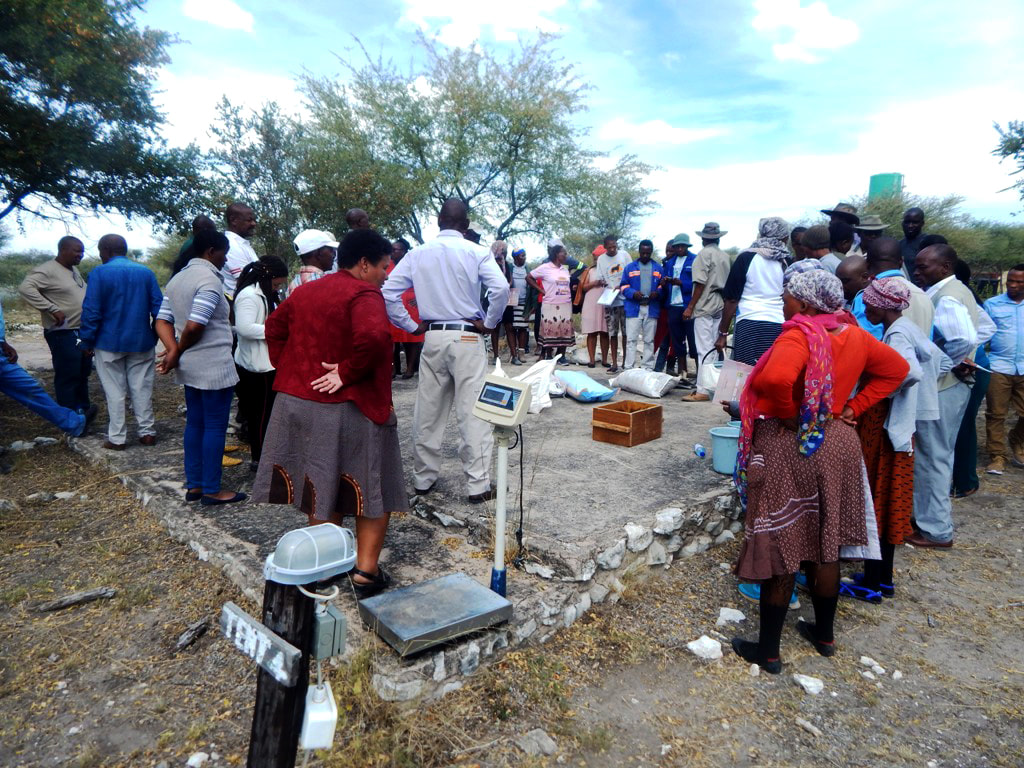In addition to his presentation on nutrient requirements of livestock, Mr Emmanuel Molemogi from DAR demonstrated the making of urea molasses feeding blocks for the participants. The mixture contained liquid molasses, urea, wheat bran, dicalcium phosphate, clay/cement, water and salt. DFFR also shared best practises for management and evaluation of rangeland management resources for sustainable livestock production without resource degradation. Common rangeland management issues include overstocking - which leads to overgrazing, deforestation, and extreme climatic conditions which contribute to drought and overgrazing. Paddocking, rotational grazing, keeping good numbers of livestock and supplementary feeding were recommended to farmers as means to manage these issues. Following the demonstrations, the farmers were encouraged to apply their new skills for the benefit of their livestock during periods of drought. They were further encouraged to make blocks for sale to other farmers as a source of income to improve their livelihoods. We appreciate the Department of Agricultural Research providing the opportunity to equip our farmers with the right tools to move forward with their farming practices.
|
Drought is one of the main challenges faced by farmers in Botswana. Farmers in Ghanzi find themselves particularly hard hit by the natural phenomenon. CCB, through our Farming for Conservation (FFC) Department, invited the Department of Agricultural Research (DAR) from Gaborone for a one-day workshop on the 7th of May at CCB's Ghanzi camp. The workshop was attended by 40 farmers from Ghanzi and the surrounding areas, and other key stakeholders such as the Departments of Forestry and Range Resources (DFRR), Wildlife and National Parks, and Agri-Business. The primary objectives of the workshop were to brief farmers on supplementary feeding and its function, as a response mechanism during extreme drought periods, and to educate farmers on how to make urea molasses blocks by mixing various stock feeds/ingredients. In addition to his presentation on nutrient requirements of livestock, Mr Emmanuel Molemogi from DAR demonstrated the making of urea molasses feeding blocks for the participants. The mixture contained liquid molasses, urea, wheat bran, dicalcium phosphate, clay/cement, water and salt. DFFR also shared best practises for management and evaluation of rangeland management resources for sustainable livestock production without resource degradation. Common rangeland management issues include overstocking - which leads to overgrazing, deforestation, and extreme climatic conditions which contribute to drought and overgrazing. Paddocking, rotational grazing, keeping good numbers of livestock and supplementary feeding were recommended to farmers as means to manage these issues. Following the demonstrations, the farmers were encouraged to apply their new skills for the benefit of their livestock during periods of drought. They were further encouraged to make blocks for sale to other farmers as a source of income to improve their livelihoods. We appreciate the Department of Agricultural Research providing the opportunity to equip our farmers with the right tools to move forward with their farming practices.
0 Comments
Leave a Reply. |
SearchArchives
May 2024
Categories |




 RSS Feed
RSS Feed
